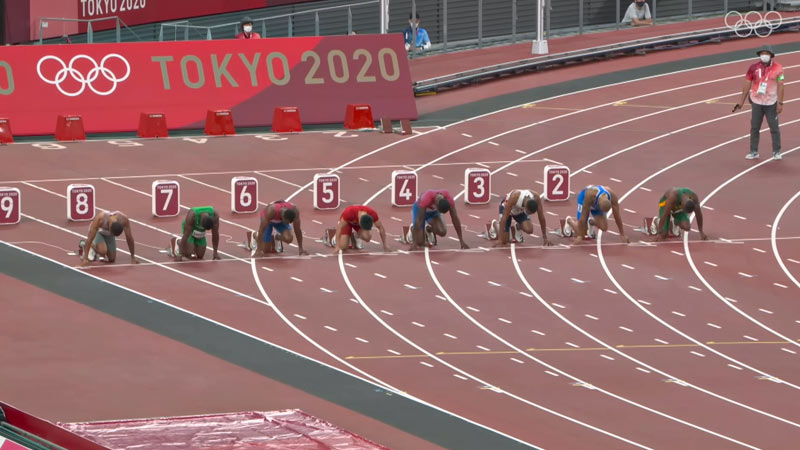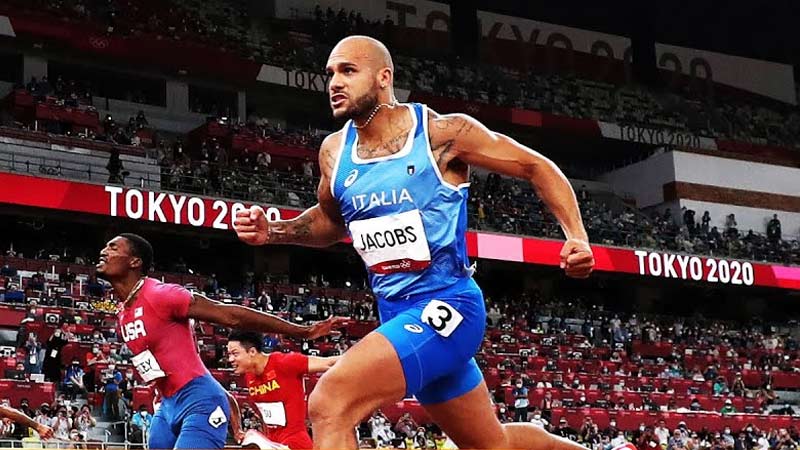The Olympics, the pinnacle of sporting achievement, are synonymous with records and remarkable performances.
In the world of elite sports, two abbreviations, “WR” and “OR,” carry immense weight. But what does WR and OR mean in the Olympics, and why are they so important?
This blog post aims to unravel the significance of “WR” and “OR” in the Olympics, offering clarity on their meaning and relevance.
“WR” stands for “World Record,” signifying the highest level of performance in a particular sport across the globe. “OR” represents “Olympic Record,” showcasing the best achievement within the Olympic Games.
To comprehend the nuances of these distinctions, we’ll delve into their similarities and differences, and why they matter in the world’s most celebrated sporting event.
Join us on a journey to appreciate the historic milestones and extraordinary feats encapsulated by these two powerful abbreviations. Stay focused.
What Does WR Mean in the Olympics?
In the context of the Olympics, “WR” typically stands for “World Record.”
When you see this abbreviation during the Olympic Games, it signifies that an athlete or a team has achieved a new world record in their respective sport or event.
Setting a world record is a significant accomplishment, as it means that the performance surpasses any previous recorded result in that particular discipline.
World records are closely monitored and recognized by the international governing bodies of each sport, and breaking a world record is often a testament to an athlete’s exceptional skill, training, and dedication to their sport.
These remarkable achievements contribute to the excitement and prestige of the Olympic Games.
What Does OR Mean in the Olympics?

In the context of the Olympics, “OR” stands for “Olympic Record.” An Olympic record is a record-breaking performance achieved during the Olympic Games.
It represents the best result ever achieved in a particular event at the Olympics but does not necessarily surpass the world record for that event.
Olympic records are significant milestones within the Games, demonstrating the exceptional skill and performance of the athletes. They serve as a measure of the current state of competition in the Olympic event.
These records are particularly important in cases where external conditions, such as weather or equipment, may vary from one Olympic Games to another, making it challenging to directly compare times, distances, or scores between different editions of the Olympics.
Unlike world records, which have a global scope, Olympic records are specific to the Olympic Games and provide a historical context for assessing the level of competition at each Olympic event.
They are a source of pride for the athletes and offer a sense of continuity and achievement throughout Olympic history.
Why Are WR and OR Important?
World Records (WR) and Olympic Records (OR) are important in the world of sports, especially in the Olympics, for several reasons:
Historical Milestones
WRs and ORs represent historical milestones and achievements in sports. They showcase the progression of human athletic performance over time.
As new records are set, they provide a tangible measure of how athletes continually push the boundaries of what is physically possible.
Inspiration and Motivation
These records inspire current and future generations of athletes. When an athlete breaks a WR or OR, it serves as a source of motivation for others to strive for excellence.
It demonstrates that seemingly insurmountable barriers can be surpassed with dedication, training, and innovation.
Competition and Excitement
Records create intense competition and excitement in the Olympic Games. Athletes strive not only to win medals but also to leave a mark by setting or breaking records.
This competitiveness elevates the quality of the games and captivates the audience, making the Olympics a global spectacle.
Legacy and Tradition
WRs and ORs contribute to the legacy and tradition of the Olympics. They are a part of the rich history of the Games and are celebrated as part of their cultural and sporting significance.
These records honor the athletes who achieve them and are a source of national and international pride.
Olympic Record vs World Record: Similarities

If you think about the similarities between OR and WR, a lot of similarities will come. Olympic Records (ORs) and World Records (WRs) share several similarities:
Measurement of Excellence
Both ORs and WRs serve as measurements of excellence in their respective categories.
They represent the pinnacle of human achievement in sports and demonstrate the highest level of performance reached by athletes.
Competitive Milestones
Both records are achieved through intense competition. Athletes strive to outperform their rivals and push their physical and mental limits to attain these records.
Whether at the Olympics or other international competitions, the pursuit of these records drives athletes to excel.
Recognition and Prestige
Both ORs and WRs are celebrated and recognized globally. They are significant achievements that earn athletes respect, admiration, and accolades.
Breaking or setting these records is a source of pride, not only for the athletes themselves but also for their countries and supporters.
Inspiration
Both types of records inspire future athletes and sports enthusiasts. When people see athletes breaking these records, it motivates them to pursue their own athletic goals and strive for greatness.
The pursuit of both ORs and WRs contributes to the continuous improvement and evolution of sports.
While these records share these commonalities, it’s essential to remember that ORs are specific to the Olympics, while WRs have a broader scope encompassing all competitions worldwide.
WR vs OR: Differences

World Records (WR) and Olympic Records (OR) differ in several key ways:
Scope of Applicability
- World Records (WR): WRs apply universally to all competitions in a specific sport. They represent the absolute best performance achieved anywhere in the world, regardless of the competition or location. WRs are not limited to the Olympic Games and can be set at various international and national events.
- Olympic Records (OR): ORs are specific to the Olympic Games. They represent the best performance achieved in that particular sport during an Olympic competition. ORs are limited to the context of the Olympics and do not hold the same global significance as WRs.
Recognition and Validation
- World Records (WR): WRs are typically ratified and monitored by international sports governing bodies, such as World Athletics or the International Swimming Federation. These organizations ensure that the records meet specific criteria and are achieved under standardized conditions.
- Olympic Records (OR): ORs are recognized by the International Olympic Committee (IOC) and are often celebrated within the context of the Olympic Games. They may or may not conform to the same strict criteria as WRs, as they are primarily intended to showcase the best performances within the Olympic event.
Competitive Context
- World Records (WR): Achieving a WR is a remarkable feat in the broader landscape of a sport. Athletes often aim for WRs at various international competitions throughout the year, and setting a new WR is considered a historic moment in the sport.
- Olympic Records (OR): ORs are specific to a particular Olympic Games edition. While they represent excellence on the Olympic stage, the focus for athletes at the Olympics is primarily on winning medals and securing their place in Olympic history, with ORs being an additional achievement.
Historical Context
- World Records (WR): WRs contribute to the historical development of a sport over time. They demonstrate the evolution of athletic performance and are recognized as part of the sport’s broader history.
- Olympic Records (OR): ORs are specific to each Olympic Games, adding a historical dimension to the Olympics themselves. They provide a unique context for assessing the level of competition in each edition of the Games.
What Is CR WR Record?
The term “CR WR record” is not a standard sports terminology or acronym. However, it could be interpreted as follows:
CR – Championship Record
CR typically stands for “Championship Record.” This record signifies the best performance achieved in a specific sport or event during a particular championship or competition, such as a world championship or regional competition.
Championship records are specific to the particular event or tournament and are often used to track the highest level of achievement within that specific competition.
WR – World Record
WR stands for “World Record.” It represents the absolute best performance achieved anywhere in the world for a specific sport or event.
World records are not confined to a single competition but apply universally to all competitions in that sport, wherever they take place.
So, when you see “CR WR record,” it suggests that a new record has been set during a specific championship or competition (CR).
This new record may be compared to the global standard, the world record (WR), to determine the level of achievement within that particular championship.
FAQs
What is the difference between a championship record and a world record?
The difference between a championship record (CR) and a world record (WR) lies in the context of their achievements.
A championship record is the best performance recorded in a specific event at a particular championship or competition.
In contrast, a world record is the best performance ever recorded for that event globally, across all competitions.
What is more significant WR or GR?
Whether a world record (WR) or a game record (GR) is more significant depends on the context.
Generally, a world record is more prestigious as it signifies the highest performance ever achieved in a specific event across all competitions.
A game record is limited to a particular championship or event and may be surpassed in other contexts, making WRs more universally recognized and celebrated
Why are WRs and ORs important in the Olympics?
WRs and ORs are important because they serve as benchmarks for excellence, inspire athletes, create competition, and contribute to the historical legacy of the Olympics.
What does “WR” stand for in the Olympics?
“WR” in the Olympics stands for “World Record.” It represents the best performance ever achieved in a specific sport or event worldwide, regardless of the competition’s location.
Are ORs recognized beyond the Olympics?
While Olympic Records (ORs) primarily hold significance within the context of the Olympic Games, they may be recognized by international sports governing bodies.
However, their primary focus is on showcasing excellence at the Olympics.
Wrapping Up
In the realm of the Olympics, where athletes push the limits of human performance, “WR” and “OR” are more than mere abbreviations; they are symbols of excellence.
World Records (WRs) and Olympic Records (ORs) serve as beacons, illuminating the zenith of sporting achievement.
While WRs span the global stage, ORs are the hallmark of success within the Olympic Games. These records, each with its unique significance, inspire athletes, spectators, and enthusiasts worldwide.
They are a testament to the relentless pursuit of greatness, fostering competition and celebrating human potential.
As we celebrate the triumphs of athletes on the Olympic stage, let us not forget the “WR” and “OR” etched in history, embodying the unwavering spirit of determination and pushing the boundaries of possibility.
They are more than records; they are the embodiment of dreams realized, and legacies written. Thank you so much.







